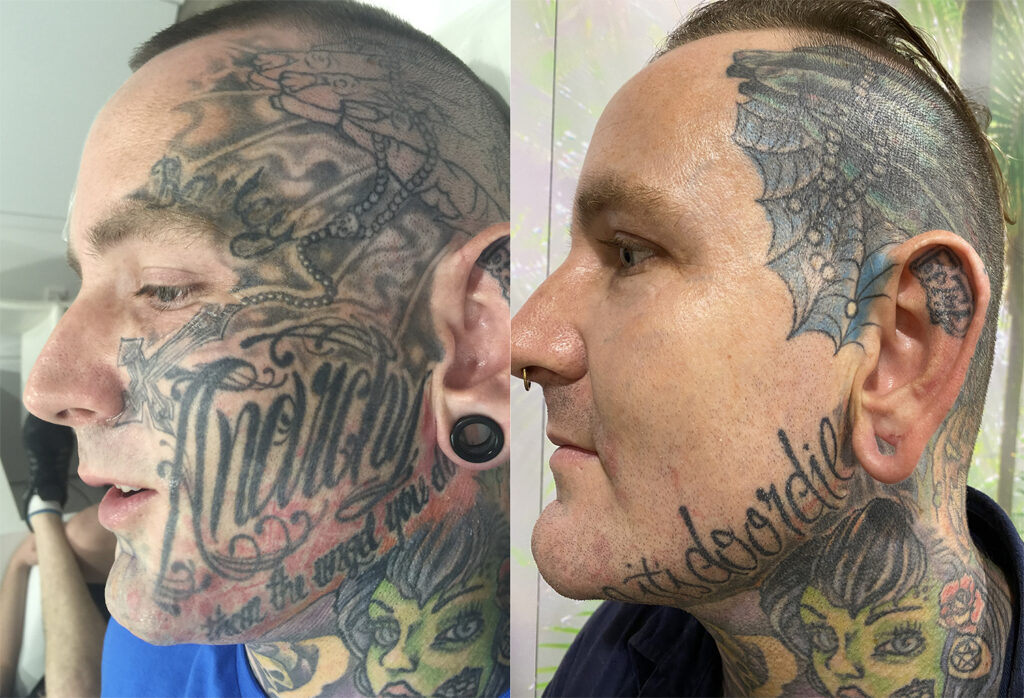
I didn’t become an immigration lawyer in Kansas City because I love forms. Let’s start there.
I got into this because I kept meeting people who had followed every rule, dotted every “i”, and carried folders filled with neatly tabbed paperwork—and still, their future in America felt as sturdy as a sandcastle on Daytona Beach during spring break.
One of those people was a young woman I met in my early years practicing at Midwest Immigration Law (or MIL, as we call it here). Brought to the U.S. when she was two, she knew the Pledge of Allegiance better than she knew her birthplace. Straight-A student, volunteered on weekends, no run-ins with the law—not even a parking ticket. But at 18, when it was time to apply for college, she found out something no teenager should: she didn’t have legal status.
We helped her apply under DACA. That gave her temporary protection, a work permit, and a Social Security number. She went to college. She even interned at a major Kansas-based aerospace firm, working on FAA compliance algorithms. But in 2025, she’s still in limbo—one policy shift away from deportation. And yes, the Green Card process? It’s no fairytale, either.
This is the strange saga of DACA recipients in America—and how, despite their dreams, the legal system often flips their story into a bureaucratic horror film. And no, not the fun kind with popcorn.
DACA: A Temporary Patch for Permanent Lives
The Deferred Action for Childhood Arrivals program, known by its snappy nickname DACA, was established in 2012 by executive action. It’s not a law, not a permanent immigration status—just a Department of Homeland Security memo that says, “We’ll look the other way for now.” As of 2024, over 530,000 people were still actively relying on it. That’s down from a peak of over 800,000 due to expiration issues, renewal denials, and plain old burnout from the process.
The trouble is, DACA doesn’t lead to a Green Card. It doesn’t provide a direct path to citizenship. You can’t even leave the country and reenter unless you request special “advance parole,” which has been suspended or restricted intermittently for years. Meanwhile, politicians treat DACA recipients like talking points, not people. That’s where an experienced immigration lawyer in Kansas City becomes crucial. Because if you’re standing on a shaky bridge over legal lava, you want someone who’s crossed it before.
And MIL? We’ve crossed it hundreds of times—often with people who didn’t even know they were eligible for protections or appeals.
The False Hope of “Reform Is Coming”
Every administration since Obama has promised to “fix” immigration. Obama started DACA; Trump tried to kill it. Biden pledged a pathway to citizenship in his first 100 days, but Congress remained entangled in its political complexities. As of mid-2025, we’re still waiting for any version of the DREAM Act to pass. You could’ve written a full-length novel trilogy in the time it took for lawmakers not to decide the fate of 500,000 young adults.
Meanwhile, other countries are moving forward at a faster pace. Canada, for example, launched its “TR to PR” pathway during the pandemic, letting over 90,000 temporary workers become permanent residents in under a year. Portugal is issuing digital nomad visas with tax incentives. But here in the U.S., someone who’s lived in Kansas City since they were two is still considered undocumented.
It’s no surprise that legal limbo starts to feel like a full-time job. I’ve seen clients lose opportunities, homes, and even their mental stability due to the uncertainty. Unfortunately, not all immigration lawyers treat these cases with the urgency and empathy they deserve. That’s where firms like Midwest Immigration Law prove their worth—by not charging California-level retainers and by actually returning your calls.
Green Cards: The Final Boss Fight of U.S. Immigration
Even if a DACA recipient marries a U.S. citizen, gets a company to sponsor them, or has a child who turns 21 (yep, that’s a strategy), the Green Card process is slow, expensive, and often heartbreakingly uncertain. Currently, the average wait time to adjust status through employment or family is 12–24 months. If you’re applying through a sibling, say goodbye for two decades—literally. The U.S. has a 65,000-per-year limit for family-based visas, which has remained unchanged since 1990. Do you know what has changed? The population. By a lot.
We now see people from Mexico, India, and the Philippines waiting 10 to 25 years, depending on the category. It’s a backlog so significant, it makes the Department of Motor Vehicles look like a Taco Bell drive-thru in rural Kansas.
And let’s not pretend the system’s always fair. The National Visa Center recently admitted to “losing” thousands of documents in 2023 due to a system migration issue. Some families had to re-file entire applications, with no reimbursement. Yes, that’s legal. No, it’s not okay. It’s why having a diligent immigration lawyer in Kansas City who knows the system’s rhythm, including how to escalate, is critical. We’ve had cases where a single follow-up fax (yes, fax—because it’s still the 1990s at USCIS) made the difference between approval and silence.
“Legal Doesn’t Mean Logical”: Bureaucratic Oddities in the U.S. System
Let’s talk about something I call “bureaucratic gaslighting.” For example, the I-485 Green Card application asks if you’ve “ever been a member of a totalitarian party.” That’s fine in principle. But I had a client from East Germany—born before the fall of the Berlin Wall—who had no choice but to be a member of the Communist Party Youth League. He was six. That required a legal memo explaining that his Lego collection did not constitute evidence of ideological commitment.
That’s the sort of absurdity that fills an immigration lawyer’s day. And in Kansas City, we’ve gotten used to these inconsistencies. One case at MIL involved a family whose child was born in the U.S., but their birth certificate had a clerical error in the mother’s maiden name. That tiny mistake caused a two-year delay in her visa process—until one of our attorneys caught it, fixed it, and got the approval in a matter of weeks.
These aren’t stories from a Netflix docudrama. This is just another day in immigration, with the help of Midwest Immigration Law professionals.
The Global Pressure Cooker: What’s Forcing Change?
Globally, climate migration is already reshaping policy. In 2024, over 3 million people were displaced by flooding in Bangladesh and India alone, prompting the UN to start redefining what counts as a refugee. Meanwhile, the U.S. still doesn’t recognize “climate refugees” as a valid claim under asylum law. Yet, cities like Kansas City are quietly becoming relocation hubs, thanks to affordable housing and lower-than-average cost of living.
Tech companies, too, are sounding alarms. In late 2024, Google and Amazon jointly released a white paper urging the Biden administration to streamline employment-based immigration, claiming they lost over $150 million in productivity due to visa denials for international STEM talent. The irony? Most of these rejected applicants were trained in the U.S.—some on DACA, others on F1 visas.
Yet despite these facts, reform remains stuck. And that’s why firms like MIL become more than just legal help. We become translators of chaos.
“Is This Your Whole Life Story?”The Psychological Toll of Limbo
One of the strangest aspects of being a DACA recipient or Green Card applicant is that you’re often asked to condense your life into 40 pages of documentation, double-sided, and signed in blue ink. “Proof of existence,” we call it: birth certificates, school transcripts, letters from employers, rental history, affidavits from friends. One client even included her Girl Scout badges and a printed email from her 7th-grade history teacher.
As an immigration lawyer in Kansas City, I’ve watched clients go through what can only be described as legalized existential crises. They begin to second-guess every moment of their past. Was that unpaid parking ticket in Tulsa in 2014 going to ruin everything? Was the birth hospital in Honduras even legitimate in the eyes of USCIS? Did that one social media post in high school sound vaguely political?
The emotional toll is severe. According to a 2023 study by the American Psychological Association, nearly 73% of DACA recipients reported symptoms of anxiety or depression tied directly to their immigration status. And that’s not surprising when every renewal notice could mean another delay—or, worse, a denial. What’s maddening is that most of them are simply trying to pay their taxes, raise their families, and go to work.
It’s why Midwest Immigration Law (MIL) keeps communication as human as possible. Yes, we handle the legal grunt work, but we also remind people they are not a case number, not just an “alien,” and not alone.
“Why Didn’t You Just Come Here Legally?” — The Myth of the Line
I can’t count the number of times I’ve heard that line in Kansas cafés, school board meetings, or awkward elevator chats. “Why didn’t they just come legally?” As if immigration works like the line for the DMV: take a number, wait patiently, eventually get processed.
Here’s the kicker: there is no “line” for most people. Not a functional one, anyway.
If you’re from Mexico and your only relative in the U.S. is a sibling who is a citizen, you may be waiting over 20 years for a Green Card. If you’re from India and work in tech, the wait time for an employment-based visa can exceed 90 years in some categories due to per-country limits—yes, 90 years. That’s not a typo; it was highlighted in a 2022 Cato Institute report. People are dying of old age before the system gives them an answer.
Even those on DACA aren’t “in line” for anything permanent. It’s a deferred action, not a status. They’re floating in limbo, paperwork renewed every two years, fees paid again and again, while politicians debate whether they “deserve” citizenship.
That’s why an immigration lawyer in Kansas City isn’t just someone who fills out forms. It’s someone who builds you a bridge to an ever-shifting island—and prays the weather holds.
Creative Workarounds (That Aren’t Illegal, We Swear)
Now, don’t get me wrong. The system may be busted, but there are legal strategies. Marriage to a citizen can sometimes be a pathway, though even that’s gotten more scrutinized since the USCIS marriage fraud crackdowns post-2020. Some clients pursue employment visas through the exceptional talent (O-1) category, secure advance parole for study abroad, or take advantage of state-based driver’s license programs to obtain an ID for the first time.
In Kansas, for instance, undocumented immigrants can now receive in-state tuition at public universities if they meet specific criteria. It’s a small gesture, but for many young adults, it’s the first crack in the legal wall. And that’s where MIL shines—spotting every available crack and figuring out how to squeeze an application through.
We once had a client qualify for an employment-based visa because of his unique knowledge of Uzbek agricultural machinery. We’ve had people apply under humanitarian exceptions, workarounds through private bills (although rare), and even narrow DACA-to-Green Card pipelines when family members’ statuses changed mid-process. It’s a legal chess game, and every move counts.
Global Stats: The U.S. Isn’t the Only One Behind
As we zoom out, it’s worth noting the U.S. isn’t the only country struggling with immigration backlogs, but we’re one of the least flexible. In 2024, the UK introduced a new Skilled Worker policy, which reduced visa processing times to three weeks in specific categories. Meanwhile, New Zealand’s immigration portal—once derided for its slow processing—now utilizes machine learning to detect and correct case delays.
Compare that to the U.S., where FOIA (Freedom of Information Act) requests to view your immigration file can take up to two years to be processed. Yes, it takes two years just to obtain a copy of your records.
As an immigration lawyer in Kansas City, this international perspective is both sobering and motivating. We know what’s possible. We just have to navigate what it is.
Why Kansas City is an Immigration Sleeper Hub
While it doesn’t make headlines like Chicago or NYC, Kansas City has quietly become a go-to destination for immigrants seeking stability, affordability, and supportive legal counsel. With housing costs significantly lower than the national average and a growing international community, Kansas has seen a rise in visa applications, work sponsorships, and family reunifications.
Midwest Immigration Law is proper in the middle of that evolution. Our clients come from Guatemala, Ukraine, Nigeria, India, and even Sweden (yes, Swedes can have visa issues, too—it’s a long story). We’ve built a reputation not just for being effective but for being real—no ivory tower, no hourly rates that make you sweat every email. And we answer the phone.
When I say MIL does it right, I’m not boasting—we’ve worked with families who were burned by high-priced attorneys in other cities, only to find a second chance with us. And often, that second chance is all that stands between staying and being separated from your kids for a decade.
A System That Could Work—If It Wanted To
There’s a concept in international law called “earned regularization.” It essentially means that if someone has built a life in a country—paid taxes, stayed out of trouble, and contributed to society—they should be given a chance to stay legally. Countries like France, Ireland, and Spain have implemented versions of this with great success.
But the U.S.? We still talk about immigration like it’s a threat. We still send ICE to raid workplaces. We still ask teenagers to defend their entire life trajectory to a tired officer at the Kansas City USCIS field office, armed with nothing but a lawyer’s letter and a couple of school awards.
The truth is that most Americans support a path to citizenship for long-term undocumented residents. Poll after poll shows this. What’s missing isn’t public support—it’s political will.
So What’s Next in 2025?
That’s the question, isn’t it? As of now, DACA remains under legal threat, Green Card backlogs remain excessive, and no new pathway legislation has been passed. But behind the headlines, something is shifting.
Younger generations are more globally minded. Business leaders are increasingly frustrated with the loss of talent. States like Kansas are starting to experiment with local immigration programs. And most importantly, there’s a growing army of people—immigrants, lawyers, advocates—who aren’t waiting around for Washington to wake up.
We’re adapting, strategizing, and surviving. That’s what MIL does every single day.
And if you’re one of the hundreds of thousands still stuck in that in-between space—neither fully here nor entirely gone—I want you to know something: the system may be broken, but your future isn’t.You just need someone who knows the map. Someone who’s played this game before. Someone who understands that immigration is not just law—it’s life. Let’s discuss how your story gets unstuck with the help of a Midwest Immigration Law professional.



